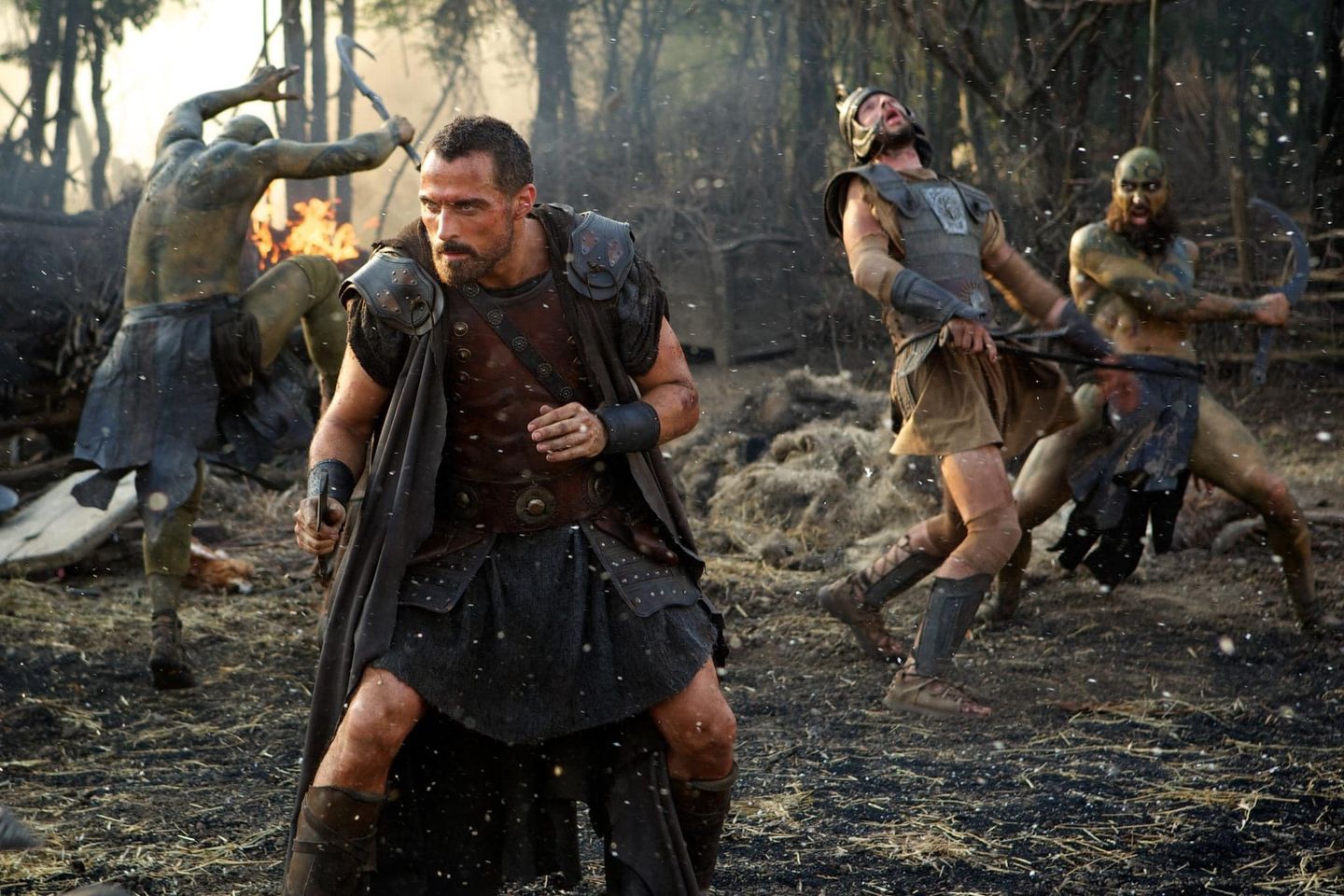Hercules (2014)

Content and Meaning of the Movie “Hercules” (2014)
The 2014 film “Hercules,” directed by Brett Ratner and starring Dwayne Johnson, offers a fresh take on the classic Greek mythological hero. Rather than presenting Hercules solely as a demi-god with superhuman abilities, the film focuses on his humanity, struggles, and the consequences of his legendary status.
Plot Overview
Set in ancient Greece, the film follows Hercules, who has earned a reputation as a fearsome warrior. Accompanied by a band of loyal companions, including his closest friend, the seer Amphiaraus, and a fierce warrior named Atalanta, Hercules is approached by a king to defeat a brutal warlord threatening his kingdom. As Hercules embarks on this quest, he grapples with his identity, questioning the myths surrounding his supposed divine powers and exploring the true nature of heroism.

Themes and Significance
- Humanity vs. Mythology: One of the film’s central themes is the contrast between human vulnerability and the mythological persona of Hercules. The narrative challenges the audience to consider what it means to be a hero. Is it about strength and glory, or is it rooted in courage, sacrifice, and moral integrity?
- The Burden of Legacy: Hercules struggles with the weight of his legendary status and the expectations that come with it. The film highlights how past achievements can shape one’s identity, often leading to an internal conflict. Hercules’ journey emphasizes the importance of defining oneself beyond the accolades and stories that others tell.
- Friendship and Loyalty: Throughout the film, Hercules is supported by his companions, showcasing the value of teamwork and trust. Their bond is crucial to overcoming challenges, illustrating that true strength often lies in unity and collaboration rather than solitary power.
- Redemption and Forgiveness: Hercules’ quest is also one of redemption. He seeks to overcome his past and find peace with the demons that haunt him. This theme resonates with audiences, reminding us that personal growth often comes from facing our struggles and seeking forgiveness, both from ourselves and others.

Conclusion
“Hercules” (2014) is not just an action-packed adventure; it is a thoughtful exploration of heroism, identity, and the human condition. By focusing on the man behind the myth, the film invites viewers to reflect on their own definitions of strength and what it truly means to be a hero. Through compelling storytelling and rich character development, “Hercules” offers a nuanced perspective that transcends the traditional boundaries of mythological narratives.











